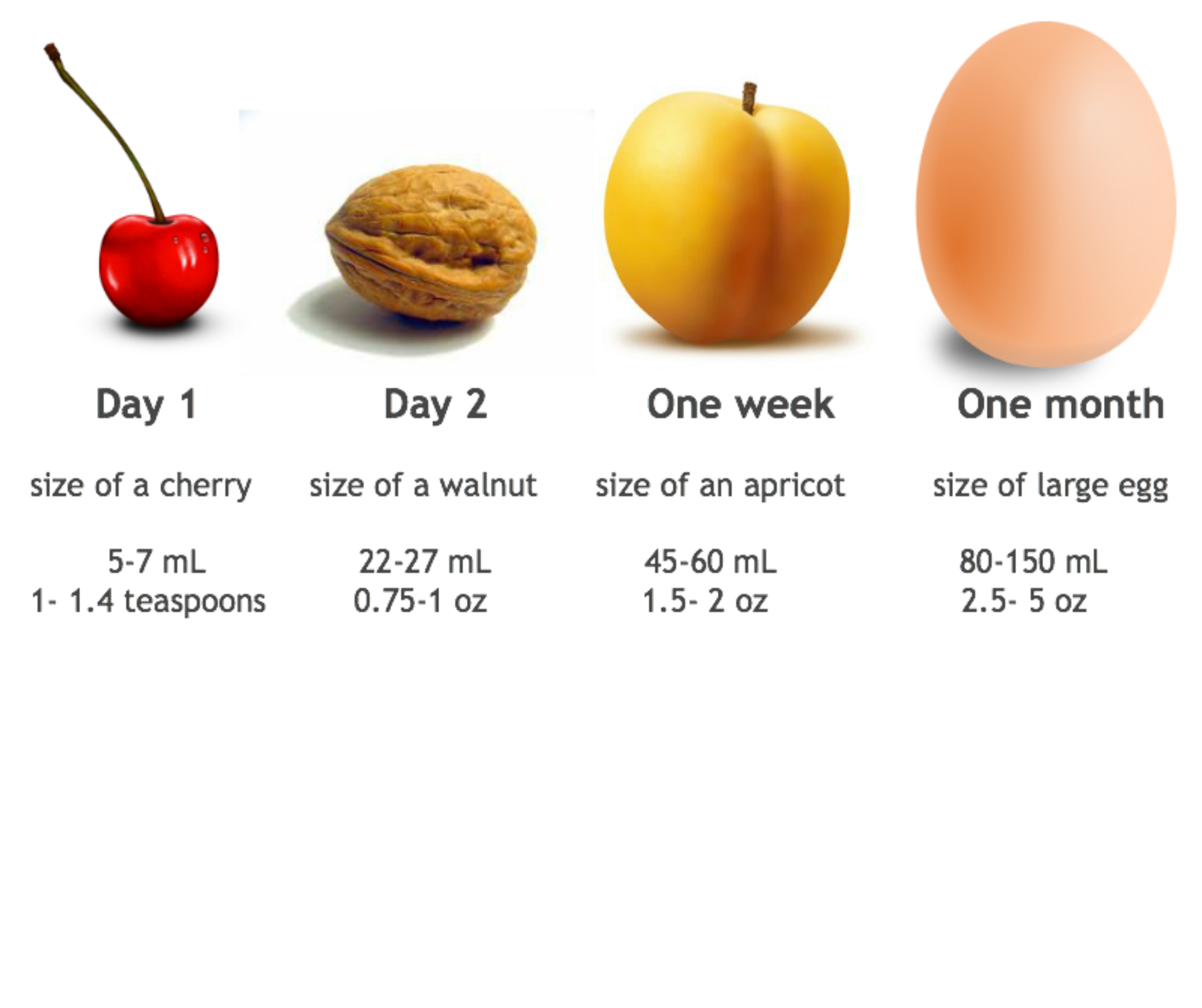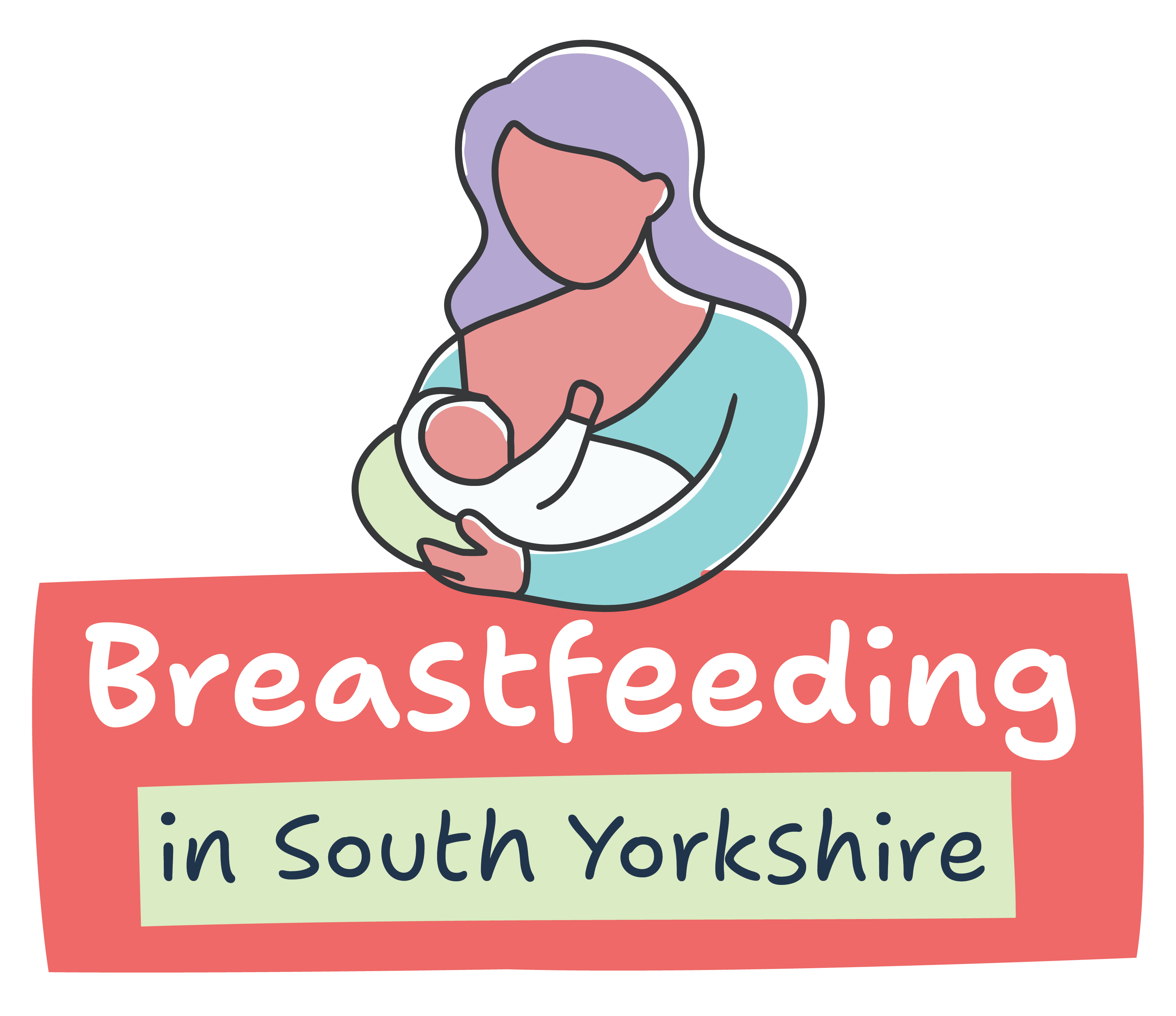Feeding cues
What to look for
You can look out for these behaviours:
- sucking fingers
- fists
- rooting around (opening their mouth as though they were about to breastfeed)
- moving and wriggling
- rapid eye movements
These are all signs that your baby is getting ready for a feed. Feeding at this stage is ideal as baby is still calm and will attach to the breast effectively.
Crying is the last sign of hunger, and by then baby may be too distressed to feed effectively.
Watch your baby not the clock.
Your baby's stomach size

A visual guide to feeding cues

Responsive feeding
Recognising when your new baby asks to be fed will soon become second nature to you.
In the first few days, their pattern may vary considerably. The length of feeds is also likely to vary, from 5 minutes to 40 / 45 minutes (in the same way as we eat different quantities at different mealtimes throughout the day).
You can expect that your baby will feed at least 6 to 8 times in each 24-hour period. For most babies it will be more frequent.
Responsive feeding cues
Keeping your baby close to you so that you can recognise cues is helpful.
In the first instance, most babies will move their eyes rapidly, put their fingers into their mouth, root around and become restless. This is a much easier time to feed than when they have got to the stage of crying. These subtle cues are much easier to pick up when your baby is close by.
Responsive Feeding for bottle fed babies
You can still be responsive to your baby’s feeding cues if you’re using a bottle.
Keeping your baby close to you and limiting feeding to you and another primary carer will make your baby feel more secure and help you to bond with each other. Have a look at points 6 to 10 of the Guide for Parents who Formula Feed leaflet by Unicef’s Baby Friendly Initiative.
More information
You can ask your midwife, health visitor or peer support worker to help you with breastfeeding.
Your local area
Visit your local area page for details of support available to you locally.
Out of hours support
You can also call the National Breastfeeding Helpline on 0300 100 0212.

